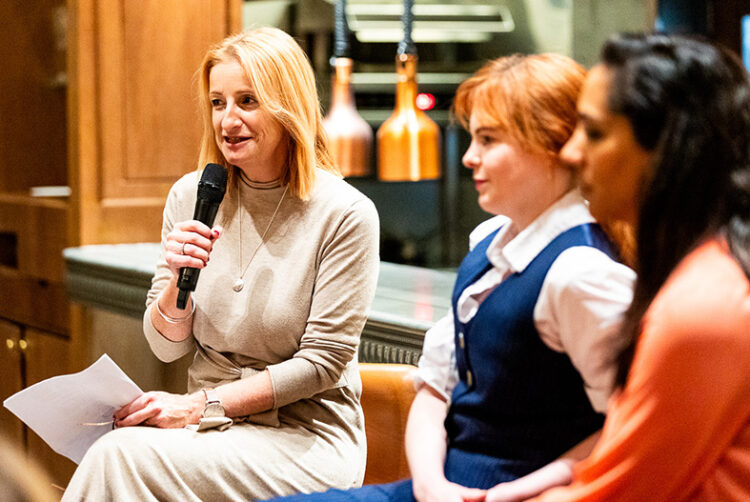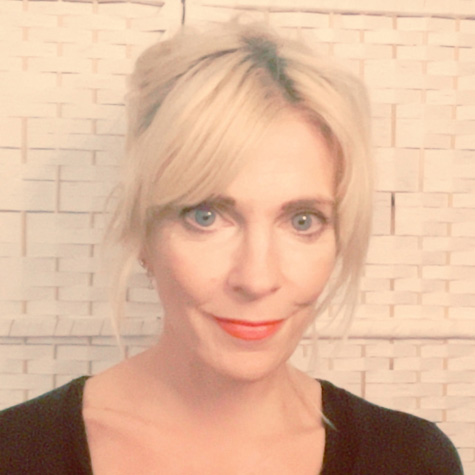Politics, polarisation and potential: Leadership lessons from top female journalists

Opinion
The gender agenda has become a polarised topic. Three leading women in journalism shed light on the issues at stake and what we can do about it at a recent Wacl panel.
We’ve all seen the studies proving that more gender-equal businesses perform better commercially. And huge progress has been made in media in recent years, with half of the top six holding company media CEOs being women, shattering a very recent glass ceiling. Meanwhile, 80% of the top 10 media agencies are currently run by women CEOs.
And yet, in the area of media investment, the number of women is still well below 50% — hence the recent positive step taken by a new network for women in media trading.
When we look across the marketing, media and comms industry more broadly, Wacl analysis found that even if we double the current rate of change, it’ll be 2045 before 50% of all CEOs are women.
So what does success for all of us look like? And why, in some areas, is gender equality still so far away?
It’s all of our job to make things right
We know that true gender equality benefits us all but, too often, the job of driving gender equality falls to women — as was clear when I sat next to one of only three men in the room at last week’s Wacl panel (thanks, Greg Grimmer!).
If we’re to build a more gender-balanced media industry, we need to keep actively inviting men in and we need more men actively driving change.
But that’s not easy. The gender agenda is becoming so polarised that “asking men to support gender equality feels like asking turkeys to vote for Christmas”, as one of the men I interviewed for my book No More Menemies put it.
He’s not alone: 59% of men in Britain now say that gender equality has gone too far and it’s men who are being discriminated against.
From broader cultural conversations like #ChoosetheBear versus #NotAllMen to the denigration of midlife men as “pale, male and stale” and the concurrent rise in the power of the “manosphere”, we’re seeing a damaging “us vs them” narrative take hold, especially among younger generations.
It’s playing out every day in politics and the press. So who better to help us understand the issues and highlight what we can do than former Mirror editor-in-chief Alison Phillips, The Sun on Sunday political editor Kate Ferguson and Observer chief leader writer Sonia Sodha?
The power of nuance
“It’s the economy, stupid” is as true today as it’s ever been. But our panel of women from media brands that represent very different audiences and political perspectives all told us that simplistic economic solutions just won’t work now.
In the current climate, we need more nuanced, grown-up conversations about growth and the economy, and we must make that engaging and accessible for all.
Of course that applies to our industry too. Media owners, agencies, creators and advertisers need to identify new drivers of growth and think more cleverly about how to generate commercial success. And gender intelligence can play a powerful role here.
For instance, we should better acknowledge the true economic value of women within our workforce. Claudia Goldin’s work on the overlooked care economy lights the way here and we could all do much more to promote for potential, think flexible first and tackle the motherhood penalty in our own businesses.
We could also do more to recognise women’s role as “the world’s most powerful consumers” with “the power to move markets” (Forbes).
And it’s not just female audiences we’re often underserving. Studies show that although men currently consume content that’s mostly by and featuring men, when they do try things by and for women they often enjoy them just as much. So there’s an overlooked opportunity among male consumers too.
Who are leaders serving?
The Wacl panel talked about the erosion of trust and widening chasm between the electorate and political leadership. Whether they’re funding their wallpaper or their wardrobe, leaders who appear tone-deaf, self-serving and disrespectful of mainstream Britons simply widen the division between leadership and the people.
The repercussions, from apathy to active antipathy, are damaging us all.
Of course, that’s true for brands, media and comms too. In an age of transparency, we’re all demanding that our brands and leaders work in our interests as well as their own. The ability to see actions from others’ viewpoints is essential and promises that aren’t kept can prove lethal.
At Wacl, we know that the industry needs to develop a new language of leadership to help — one that champions behaviours that were traditionally seen as feminine but are vital for everyone to practise, such as emotional intelligence, collaboration and the habit of questioning oneself.
Evidence tells us these are some of the most effective leadership qualities, so it’s time we all leaned in to those more, rather than championing old-school “ballsy” and “bullet-proof” competitiveness and confidence.
Combat culture is hurting us all
As well as the widening gap between leaders and the electorate, the panel also talked about a growing hostility between people with diverse views and experiences. This polarisation is alarming and we see its impact in everything from Brexit to Covid-19 to the upcoming US election.
Media clearly has a huge role to play. Whether it’s funding quality journalism in an era of fake news, exposing audiences to different perspectives outside their echo chambers or continuing to balance freedom of speech with freedom from hate, there’s much for us all still to do at a structural level.
But even as individuals, an “every little helps” approach can be powerful too. As Phillips put it, since 14% of the electorate voted for Reform UK, if you don’t know someone who supports that party, you’ve got a massive blind spot.
And bearing in mind that men under 25 were twice as likely as women of that age to vote Reform, we need to start properly listening to how young men are feeling today and really understand each other’s underlying drivers and motivations.
Listening to refute is easy. Listening to understand is much harder.
But in tough and polarised times, this industry has a disproportionate power to lead the way and create positive change. We have to work together if we’re to achieve that potential.
 Lori Meakin is author of No More Menemies and executive member of Wacl
Lori Meakin is author of No More Menemies and executive member of Wacl





